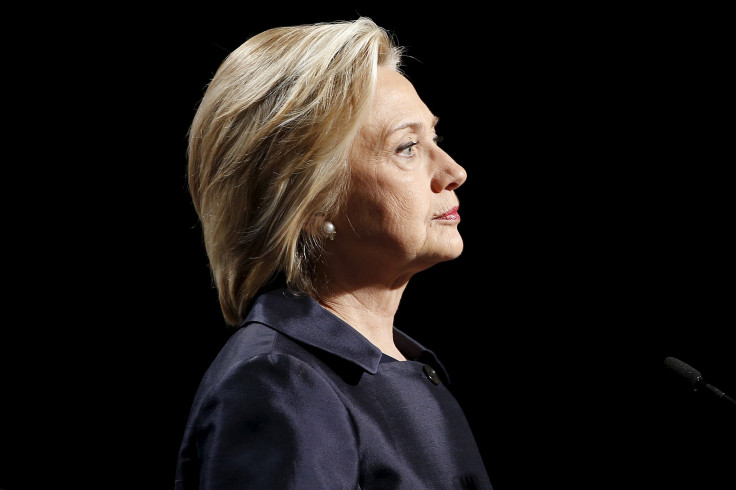Hillary Clinton Takes Strong Lead Over Primaries, GOP Rivals: Poll

Hillary Clinton emerged with a firm lead over all her Democratic rivals and three potential Republican contenders, a Tuesday poll shows. The Wall Street Journal/NBC News poll, conducted in the days after Clinton held her first rally earlier in the month, found that the former secretary of state enjoyed widespread support from key voting groups including Latinos and women under the age of 50 years.
Three-quarters of Democratic primary voters said they preferred Clinton, compared to 15 percent for Bernie Sanders. However, 92 percent of Democratic primary voters said they could see themselves supporting Clinton. A total of 1,000 adults were surveyed over phone across the country between June 14 and June 18, 2015.
By contrast, the Republican front-runner, Jeb Bush, commanded support from 22 percent of the respondents. Scott Walker and Marco Rubio came next in line with 17 percent and 14 percent, respectively. In a theoretical race between the two, the poll found, Clinton would lead Bush 48 percent to 40 percent.
“She starts with advantages among very important groups,” Republican pollster Bill McInturff, who conducted the survey along with Democrat Fred Yang, told the Journal. He added that Clinton’s standing among other Democrats was “the strongest and most advantageous” he had seen since entering politics in 1980.
However, 62 percent of Democratic primary voters also said they wanted to see Clinton face a strong Democratic challenger in the primary to ensure she is ready for the general election.
In fact, Clinton specifically seemed to garner more support from across the board than the Democrats themselves. Latinos favored a Democratic president over a Republican one by 9 percentage points, but Clinton’s average lead over Bush and Rubio was 42 percentage points. Among all voters, 44 percent view Clinton favorably and 40 percent see her unfavorably.
Sixty-one percent of Americans said a third Bush president would leave them feeling “uncertain and wondering” or “pessimistic and worried.”
The prospect of another Bush vs. Clinton race, which the poll indicated to be most likely, was also met with a mixed response. Only 16 percent of respondents said they would be “very satisfied” with that race, and about half said they would be “fairly” or “just somewhat” satisfied with it.
Other polls paint a more complicated picture for the Democratic primaries. A Suffolk University poll conducted this month found that 41 percent of New Hampshire primary voters supported Clinton, and 31 percent supported Sanders, a much closer race than that seen nationally.
However, Sanders faces a significant hurdle in his self-description as a socialist. A Gallup poll released this month found strong biases among voters against socialists and atheists. Less than half of Americans would vote for a socialist candidate, the poll found.
© Copyright IBTimes 2024. All rights reserved.











